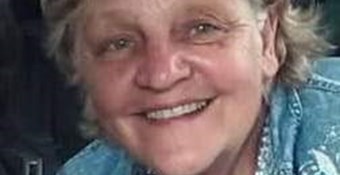National
Neurologist initially suspected #VanBreda of faking illness─── 06:25 Tue, 28 Nov 2017

The neurologist who examined Henri van Breda following a reported seizure earlier this month considered the possibility that the triple murder accused was malingering, he told the Western Cape High Court on Monday.
Dr James Butler, the accused's sixth witness, however, eventually concluded that there was compelling evidence that Van Breda had had an epileptic seizure on the night of the axe attacks, and that the possibility of malingering, or pretending to be ill, was so unlikely it "can effectively be disregarded".
Butler earlier this month diagnosed Van Breda with juvenile myoclonic epilepsy after the young man accused of killing his parents and brother, and severely injuring his sister, underwent tests at Mediclinic Constantiaberg.
On the afternoon of November 10, Van Breda reported that he had become amnestic while discussing the court case with his girlfriend Danielle Janse van Rensburg while sitting on his bed.
Janse van Rensburg said Van Breda had leaned forward then fell back on the bed. His eyes had rolled back, she said, and his body and arms had been shaking.
When he regained his memory, she said he appeared disorientated and looked "like a drunk person".
Diagnosis 'unambiguous'
Janse van Rensburg phoned her father, who is a general practitioner, who suggested what medication he should take.
Butler said Van Breda told him he had experienced a similar episode in February 2016, while discussing the case with his girlfriend. He had had six glasses of wine that day, and everyone they had told thought it had been caused by the alcohol.
He confirmed he was on medication for depression and anxiety, which he started taking in February 2015.
Van Breda was held for tests over the following weekend, and after analysing his EEG scans (tests that record the electrical signals of the brain), Butler "unambiguously" diagnosed him with juvenile myoclonic epilepsy.
Van Breda claimed to have been unconscious for two hours and 40 minutes following the attack. He phoned emergency services after he apparently came to.
Butler said without a witness, it was impossible to know how long his seizure lasted or how much of the designated time represented a postictal state – an altered state of consciousness after a seizure – which does not end when a person rouses.
Behaviour consistent with seizure recovery
Butler also referred to a photo of Van Breda in the ambulance after paramedics had arrived on the morning of the attack on his family. He said the accused had dark rings under his eyes, a bruise on his left eye and looked considerably "dull".
This, he testified, was consistent with someone recovering from a seizure as his appearance was similar to patients in a postictal state.
He also mentioned that urine was found on Van Breda's shorts – a possible sign that he had wet himself. The bladder contracts and may result in urination during a seizure.
Butler in his report concluded that there was compelling evidence that Van Breda had a "generalised tonic-clonic (epileptic) seizure" on the night of the murders.
He based this on his epilepsy diagnosis, two further seizures after the murders and the corroborative evidence of his girlfriend as to when the seizures started.
The EEG provided unambiguous and independent verification of the diagnosis, he found, and Van Breda's inability to recognise his incontinence during the postictal period indicated that his brain had still not been "working properly" after he regained consciousness.
'Dysfunctional brain'
His behaviour on the audio clip of his emergency call – during which he appears "inappropriately calm and lacking in urgency, given the gravity of the circumstances", and lacks knowledge about his family's status – was also consistent with the behaviour of someone in a postictal state.
"A postictal state, where the brain is dysfunctional and where the EEG waves are very slow, would very easily account for his behaviour."
This is in contrast to his cognition immediately before he lost consciousness, Butler found.
Van Breda pleaded not guilty to axing his parents – Teresa and Martin – and brother Rudi to death, seriously injuring his sister, Marli, and defeating the ends of justice.
The trial resumes on Tuesday.














